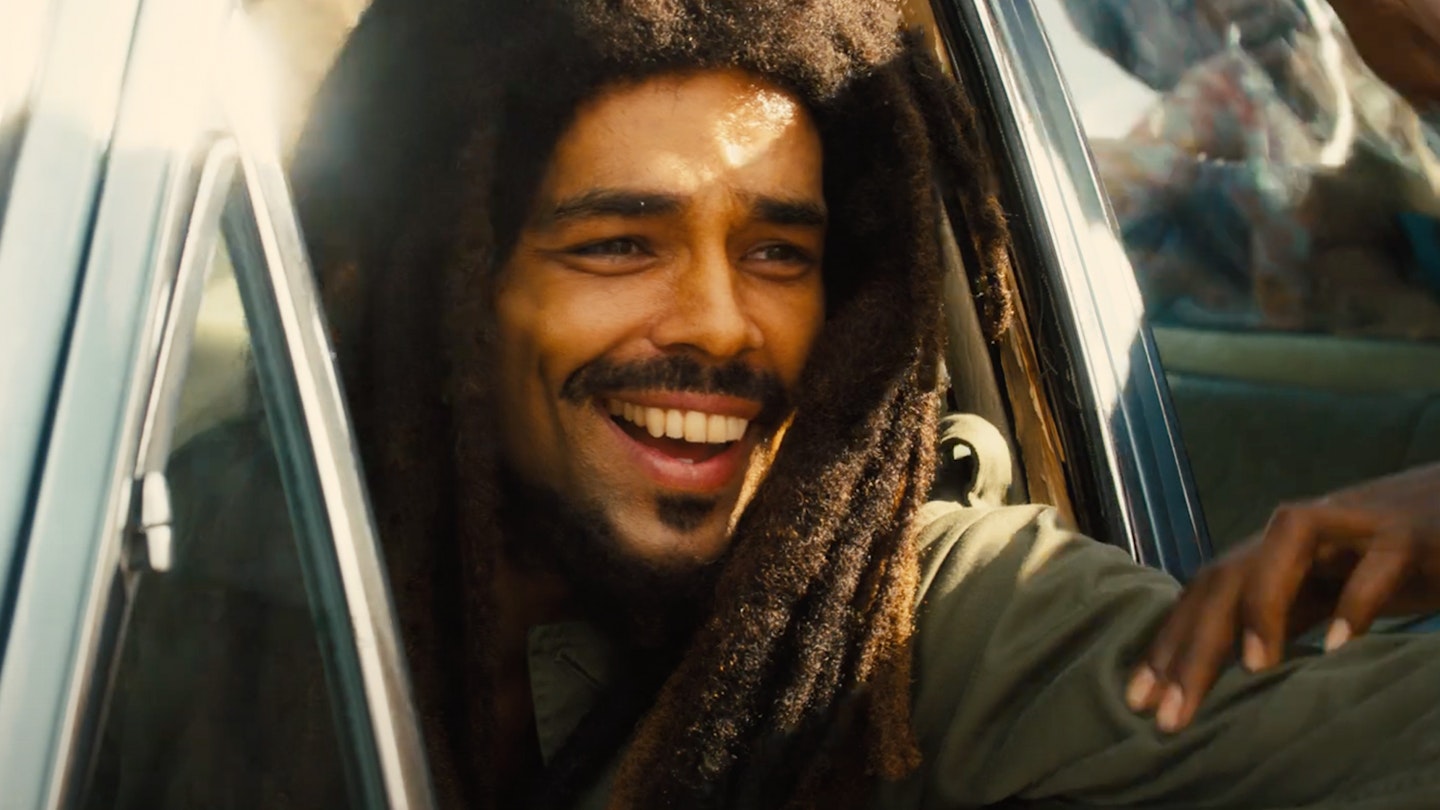In his short life, Bob Marley undeniably achieved a huge amount. He ushered reggae music into the mainstream, recorded albums that have sold over 75 million copies, became an iconic, globally recognised megastar, and spread a message of peace and unity. He died at just 36, at the peak of his fame. He’s ripe for a biopic, and in King Richard director Reinaldo Marcus Green’s hands he gets a very respectful one. As a telling of the events of Marley’s adult life, this is solid and sincere, but also seemingly cautious not to dig too deep.

It begins in 1976, when Marley (Kingsley Ben-Adir) is already very famous. He’s cracked America and is an icon in his home country of Jamaica, a place deeply politically divided and plagued with violence. In a bid to apolitically unite people, Marley is to play a ‘Smile Jamaica’ concert. Two days before, an attempted assassination leaves Marley injured and his wife, Rita (Lashana Lynch), in hospital. Marley goes ahead with the gig anyway. One Love is a portrait of Marley finding his place not just as a singer but as a man who can bring people together; whose own life exists to enrich the lives of others.
It's much more a timeline of events than an exploration of a man.
Green takes us through the big notes of the period: some very entertaining scenes as Marley and his Wailers find the sound for their next album, Exodus; strain on his marriage as fame takes its toll; culture clash in punky ’70s London; a hero’s welcome in Jamaica. But it’s much more a timeline of events than an exploration of a man. There are four writers credited on the film, including Green and Wolf Of Wall Street writer Terence Winter, but the script is underdeveloped. It only grazes the more complicated parts of Marley’s life. His fathering many children outside his marriage is raised in a street row with his wife, but otherwise ignored. His childhood — most of his life pre-1976 — is touched on in hazy but fleeting and unrevealing flashbacks. It seems nervous about adding nuance or shadows to its glowing depiction of Marley, but the result is that it keeps its own subject at a distance.
Crucially, however, Ben-Adir is excellent as Marley. He bears little physical resemblance to the real man, but he gets the easy, languid presence and the electric, energetic on-stage persona. He’s believable as a man who simultaneously craves and rejects fame, knowing the good it can do others and bad it can do him. And he keeps the accent steady when many around him are losing theirs. In a film that mostly sticks to reliable formula, he is one thing to love.




